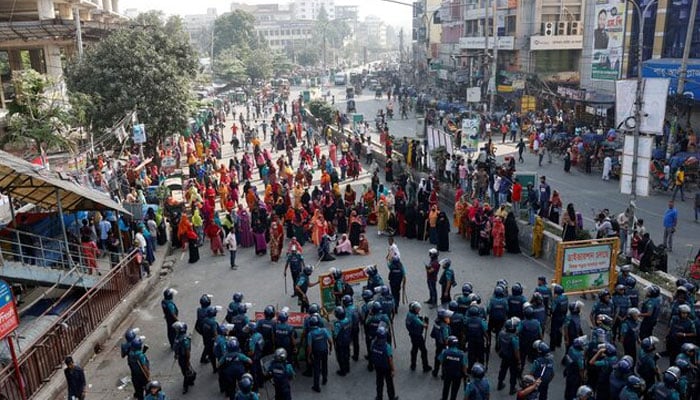Operations at Chittagong Port, Bangladesh’s busiest and most vital shipping hub, came to a complete standstill on Sunday as customs officials launched a full-scale strike amid a prolonged dispute with the government.
The strike halted all container movement, disrupting the daily handling of 7,000 to 8,000 containers and dealing a massive blow to the country’s economy.
“There has been no movement in offloading or onboarding of goods since this morning,” confirmed Mohammed Omar Faruq, Secretary of the Chittagong Port Authority. “This is having a huge impact on the country’s economic situation.”
The sudden stoppage has triggered alarm across business sectors, with fears of export backlogs, import delays, and rising financial losses.
Garment Industry Faces $222 Million Blow
The textile and garment sector, which makes up around 80% of Bangladesh’s exports, is particularly hard-hit. Bangladesh ranks as the world’s second-largest garment exporter, and any disruption in its supply chain sends shockwaves through global retail markets.
Read: Netanyahu Claims ‘Victory’ Over Iran, Eyes New Opportunities to Rescue Gaza Hostages
Mahmud Hasan Khan, President of the Bangladesh Garment Manufacturers and Exporters Association, warned of devastating consequences.
“The halt in port operations will cost our industry approximately $222 million,” he said. “The cost of recovery will be staggering — beyond comprehension — and many factories risk going bankrupt.”
With shipments stalled and raw material imports delayed, factories across the country are expected to slow or cease production in the coming days. Industry leaders are now urging the government and protesting employees to find common ground — before permanent damage is done.
Government Cracks Down as Crisis Escalates
At the heart of the strike is the National Board of Revenue (NBR), whose staff are resisting government reforms to split the authority into two separate entities. The strike has been ongoing intermittently for weeks but reached a critical point on Sunday when customs officials were physically barred from entering their offices under a government order to prevent further protests.
Interim leader and Nobel Peace Prize laureate Muhammad Yunus urged NBR employees to end their protest and return to work immediately.
“We hope NBR’s staff will report back to work, setting aside their unlawful programme that goes against the national interest,” his office stated. “Otherwise, for the sake of the people and safeguarding the economy, the government will be left with no option but to act firmly.”
Thirteen major business chambers held a joint press conference on Saturday, urging both sides to resolve the issue urgently. They warned that continued deadlock would paralyze the national economy and tarnish Bangladesh’s global trade reputation.
As the stalemate continues, exporters, importers, and factory owners are caught in limbo, watching closely to see whether dialogue can end the disruption — or if a government crackdown is next.
Follow us on Instagram, YouTube, Facebook,, X and TikTok for latest updates
